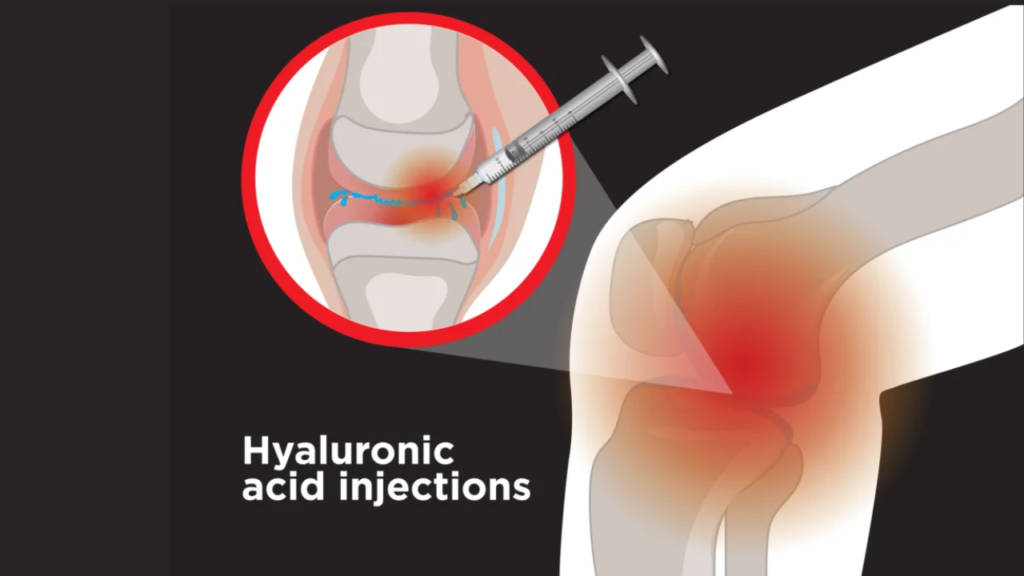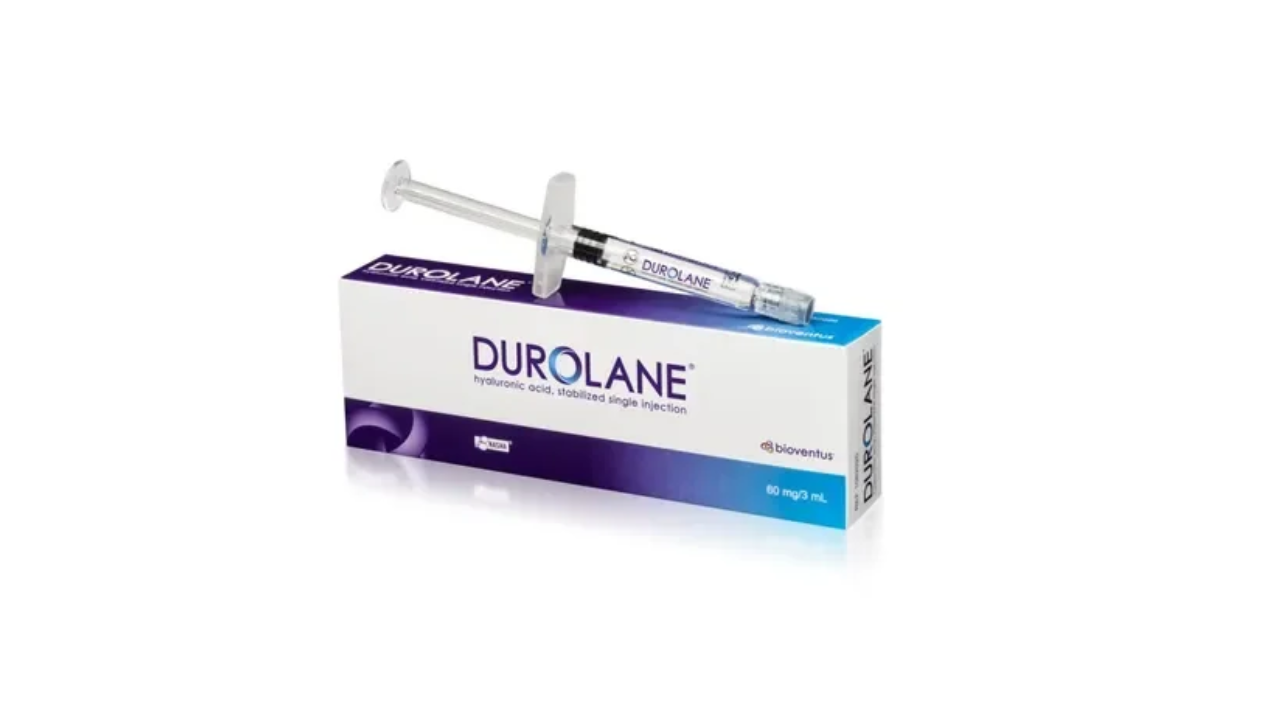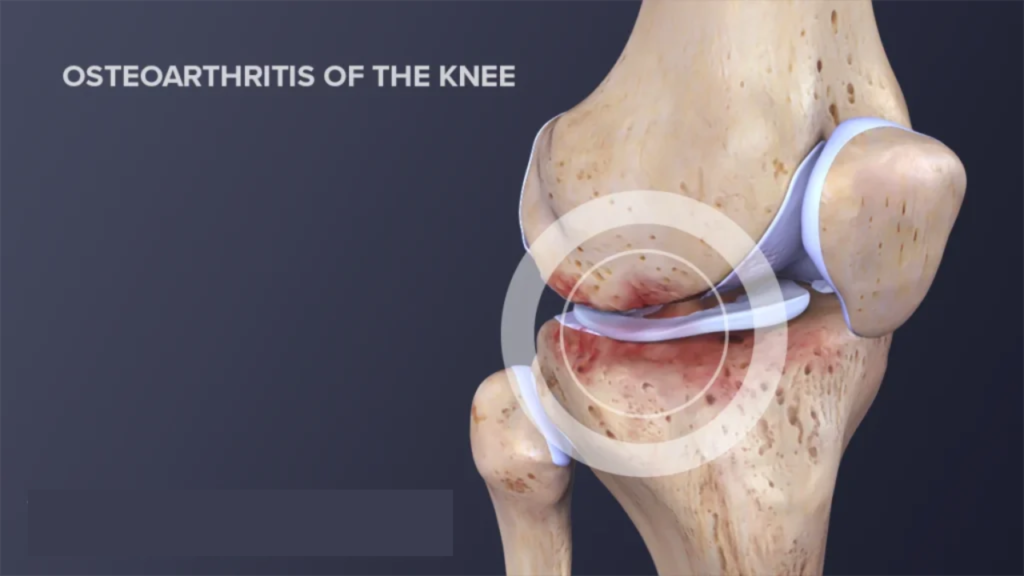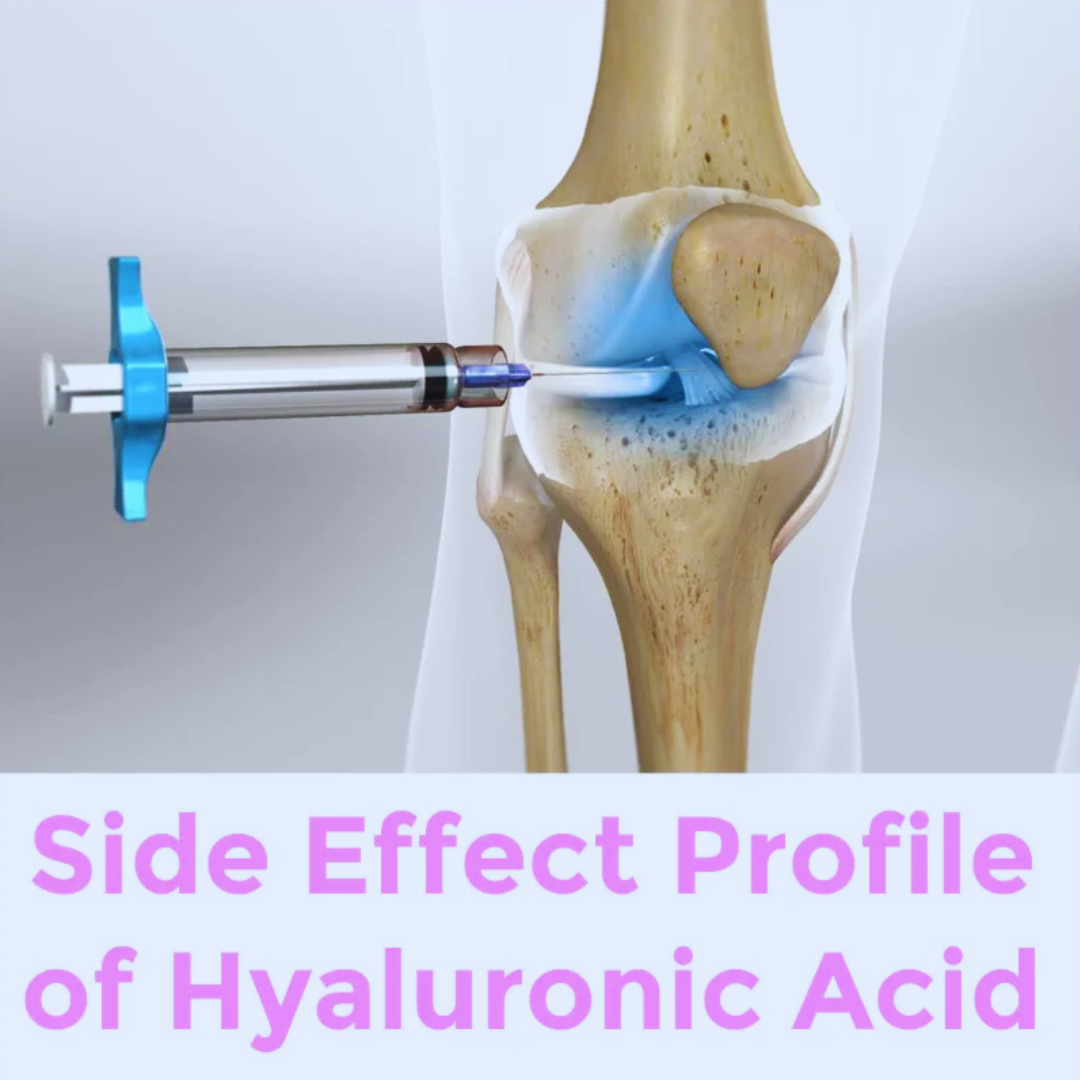
Over 33 million adults in the U.S. suffer from osteoarthritis, the most common type of arthritis. This condition occurs when the cartilage, which is the connective tissue covering the bones in your joints, breaks down and wears away. People suffering from osteoarthritis often experience swelling, pain, and stiffness in their joints.
Osteoarthritis has no cure, but its symptoms can be managed. Although the condition may worsen over time, both surgical and nonsurgical treatments can help alleviate discomfort. Doctors typically start with medicines, physical therapy, and cortisone injections. For those with serious joint damage or when other treatments fail, joint replacement surgery may be considered.
Hyaluronic acid injections, also known as lubricating shots or viscosupplementation, offer another treatment option. These injections may help individuals with mild to moderate osteoarthritis who do not react to other treatments and wish to avoid or aren’t suitable candidates for surgery. Let’s know more about hyaluronic acid injections in this article.
What Are Hyaluronic Acid Injections?

If you have knee osteoarthritis, hyaluronic acid injections, also called hyaluronan injections, might be an effective treatment option. These injections aim to improve joint movement and ease pain, particularly when other treatment options have not been effective. Hyaluronic acid naturally exists in the synovial fluid of various joints in your body.
In healthy joints, this fluid acts as a lubricant, helping the cartilage at the ends of your joints to move smoothly against each other. This process helps your joints move freely and keeps them healthy.
Injecting hyaluronic acid is believed to help lubricate joints where osteoarthritis has roughened the cartilage. It might even aid in cartilage regeneration. This medication should only be given by or under the direct supervision of your healthcare professional.
How Do Injections of Hyaluronic Acid Treat Osteoarthritis?

Hyaluronic acid injections can help slow down osteoarthritis in several ways:
- Joint Lubrication: Osteoarthritis often leads to a decrease in synovial fluid, which is essential for keeping joints lubricated. Hyaluronic acid naturally occurs in synovial fluid. Hyaluronic acid injections use a man-made version of hyaluronic acid to restore this fluid, helping joints move more smoothly.
- Inflammation Reduction: These injections also contain medicines that help reduce inflammation in the joints, easing swelling and pain.
- Cartilage Repair: Hyaluronic acid injections encourage cartilage cells, known as chondrocytes, to produce more of their own hyaluronic acid and other important substances, which support the health of the joints.
Some individuals might find it helpful to alternate between cortisone and hyaluronic acid injections. Cortisone injections can quickly ease pain but usually only last for 2-3 months. However, frequent use of cortisone can harm cartilage and affect the body’s hormonal balance, including the adrenal glands.
Cortisone injections can also raise blood sugar levels. In contrast, hyaluronic acid injections do not impact blood sugar, which makes them a better choice for individuals with diabetes. In addition, they might offer longer-lasting pain relief, potentially up to 6 months, compared to cortisone.
Who Can Take Hyaluronic Acid Injections?
Studies on how effectively hyaluronic acid injections work show mixed results. Some research finds them helpful, while others see they provide little benefit. The American Academy of Orthopedic Surgeons advised against routinely using these injections for treating osteoarthritis in 2021. Although they noted some patients might still find them useful.
Hyaluronic acid injections aren’t effective for treating individuals with bone-on-bone or severe arthritis. However, they could be an option for those with milder symptoms who have not found relief from other treatments. They also offer an alternative to surgery.
For instance, some individuals with knee osteoarthritis might not be able to take time off from their work schedule for knee replacement surgery. Other individuals may not qualify for surgery due to serious health issues like significant heart disease. Hyaluronic acid injections provide these people with an alternative treatment that could enhance their quality of life.
Doctors cannot always predict who will get advantages from hyaluronic acid injections. However, many prescribe them for knee osteoarthritis patients whose symptoms don’t improve with painkillers or non-drug treatments like ice or heat.
People who can’t take painkillers such as naproxen sodium, acetaminophen, or ibuprofen often try hyaluronic acid injections. These injections appear to work better for some individuals than others. Furthermore, they might be less effective in individuals with severe osteoarthritis and older adults.
How Hyaluronic Acid Injections Are Taken?
You will receive a hyaluronic acid injection directly into your joint, known as an intra-articular injection. A trained healthcare expert or nurse will carefully assess you and discuss whether this injection is right for you before giving it to you. Your doctor will monitor your progress closely while you’re on this medication.
This monitoring helps your doctor determine if the treatment is effective and whether you should continue with it. Depending on the brand of hyaluronic acid used, you might receive from one to five injections, typically spaced a week apart.
Avoid high-impact sports, jogging, and excessive physical activity for at least two days after receiving the injection. Also, try not to lift heavy objects or stand for extended periods. Avoid using this medication with disinfectants that contain quaternary ammonium salts, like benzalkonium chloride.
This is because ammonium salts can interfere with the effectiveness of the hyaluronic acid injection. You might not feel the effects of the hyaluronan injections immediately, but once they take effect, the benefits could last for several months.
What Are The Side Effects of Hyaluronic Acid Injections?

One of the most common side effects of hyaluronic acid knee injections is joint or injection site pain. This pain usually improves within one or two days. Hyaluronic acid injections are not suitable for everybody. For instance, some injections contain poultry and egg byproducts, which can trigger allergic reactions in certain individuals.
Also, they aren’t recommended for individuals with active infections in their joints or elsewhere in their body. Stiffness and pain caused by Osteoarthritis can disrupt your daily activities. Your healthcare provider can help you decide if hyaluronic acid injections are a good fit for your treatment plan.
In addition, taking specific supplements, exercising, and managing your weight can help ease joint pain. Before receiving a hyaluronic acid injection, inform your healthcare team about any other medications you are taking.
Avoid using complementary treatments, like herbal remedies, without consulting a healthcare expert, as they might interact with the injections. It is also wise to discuss vaccinations with your doctor before starting hyaluronic acid injections. Make sure to inform anyone treating you that you have recently had these injections.
Concluding Words
Hyaluronic acid is a sugar molecule found naturally in your body, particularly in the joints, eyes, and skin. It draws in and holds moisture, which makes it an excellent topical moisturizer for the skin and eyes. Hyaluronic acid serums also play a key role in regenerating scar tissue and healing wounds.
In addition, many individuals receive hyaluronic acid injections to relieve arthritis pain. In cases of osteoarthritis, the hyaluronic acid in your impacted joint becomes thinner. Hyaluronic acid injections help replenish your body’s natural supply. Your doctor might call these injections “viscosupplementation,” meaning they increase the fluid in your joints.
